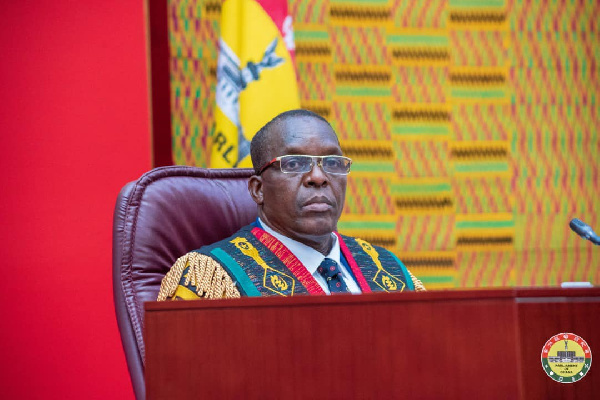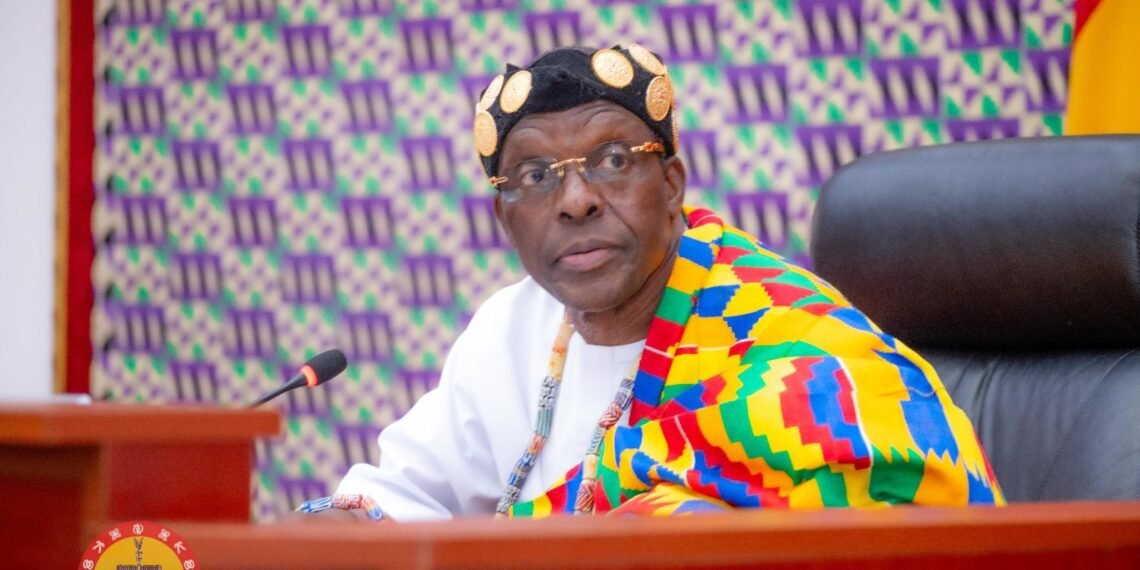The Speaker of Ghana’s Parliament, Rt. Hon. Alban Kingsford Sumana Bagbin has underscored Ghana’s unique national characteristics of peaceful coexistence during a recent courtesy visit from the Planning Committee for the National Day of Prayer, led by Hon. Elvis Afriyie Ankrah.
Speaker Bagbin commenced his address by drawing a contrast between Ghana’s internal dynamics and the historical divisions seen elsewhere, citing the enduring chasm between America and Russia, and the painful partition of Korea.
“Political philosophy has become a point of conflict for several countries. Ghana is so unique that when they hear that we sit like we are sitting; even our parliament, when we go around and we are sitting together, both opposition and government, the other parliaments are surprised.”
Ghana’s Speaker of Parliament, Rt. Hon. Alban Kingsford Sumana Bagbin
This statement highlighted the astonishment of international observers who witnessed Ghana’s political rivals engaging in dialogue and cooperation, a stark departure from the often confrontational and uncompromising legislative environments found in many other democracies.

The Speaker then delved into his personal experiences to illustrate this collaborative ethos. Recounting his eight years as an opposition leader, he shared anecdotes of working closely with government ministers, a practice that often bewildered his international counterparts.
Furthermore, Speaker Bagbin articulated a core tenet of Ghana’s democratic evolution: the inevitability of change.
“Change is permanent. There’s nothing you can do about it. There’s no government that will come to Ghana and be there forever. No. It’s not normal. Change will come whether you like it or not.”
Ghana’s Speaker of Parliament, Rt. Hon. Alban Kingsford Sumana Bagbin
This philosophical stance on the transient nature of political power serves as a crucial bulwark against the temptation for any regime to entrench itself indefinitely.
He issued a powerful caution against attempts to resist this natural progression through coercion: “If you try to stop it and you come with force, it will distract you.”
According to him, his counsel to his Nigerian colleagues, who initially dismissed the idea of a ruling party yielding power, proved prophetic.
“When it happened, they sent for me to go and take them through a workshop. I was released in opposition, and I was there to take them through”.
Ghana’s Speaker of Parliament, Rt. Hon. Alban Kingsford Sumana Bagbin
This anecdote, he noted, not only underscores the universality of democratic transitions but also positions Ghana as a model for peaceful power shifts and constructive opposition.

Role of Parliament
Turning his attention to the legislative body he leads, Speaker Bagbin emphasized the Parliament’s pivotal role as the “house of the people.”
He expressed his commitment to ensuring that “Ghanaians will hear from us,” indicating a dedication to transparency and responsiveness.
He further encouraged Members of Parliament to “come with a statement on the floor and allow comments to be about the goodness of this, I must say, implementation efforts.”
This highlights his desire for parliamentary discourse to focus on constructive outcomes and the tangible benefits of national initiatives, fostering unity within the house, which he believes is crucial for broader national cohesion. “Parliament is the heart of all Ghanaians, and if we’re cutting through properly, then once parliament is united, the country will be united,” he affirmed.
In his concluding remarks, Speaker Bagbin underscored the indispensable role of religious peace and harmony in national development. “Religious peace, harmony is a must for development,” he stressed, recognising it as a bedrock upon which progress can be built.

He reiterated the profound spiritual underpinning of Ghana’s success: “And God himself will grant us, because without God, you cannot achieve anything, and that is what many of us have also lost.”
This reflection points to a perceived deviation from the nation’s spiritual values, a return to which he implicitly advocated.
His final reflection, “grow what we eat. Be who we are,” serves as a powerful summation of a philosophy rooted in self-reliance, authenticity, and a deep appreciation for Ghana’s intrinsic values, which have historically fostered its unique environment of peace and stability.
READ ALSO: Mahama Charts Strategic Alignment, Shared Vision at Ghana-EU Economic Forum




















